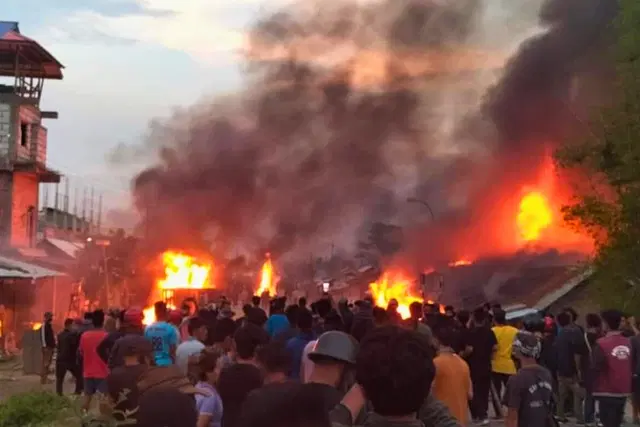The deafening silence of Prime Minister Narendra Modi and the half-hearted, partisan approach of his government towards the ethnic violence in Manipur, over the past two months, are responsible for the apparently uncalled for resolution of the European Union Parliament urging the Centre to “take all necessary measures to promptly halt the ongoing ethnic and religious violence.” It did not even stop at that and sent out a strong message to the Indian government to protect all religious minorities, such as Christians in Manipur. This is no mere expression of concern, but a warning that if the humanitarian crisis is not stopped immediately, it would impact the economic ties between India and EU. It is also true that the EU Parliament does not have any teeth and cannot do much beyond economic strangulation. The European lawmakers asserted that human rights should be an important part of ongoing negotiations between India and the EU on the free trade agreement.
Meanwhile, the reaction of Ministry for External Affairs (MEA) to the EU resolution, terming it as unnecessary interference in India’s internal affairs and a reflection of “colonial mindset”, smacks of arrogance and foolhardiness. When the BJP-led government has been making tall claims for digitising India, it should have realized that in today’s social media world it takes only a few minutes for the whole world to know the exact extent of ethnic violence in Manipur and the seemingly deliberate inaction of the double engine BJP government – since it is ruling both in that state and the Centre.
No wonder the resolution described with hard statistics the situation in Manipur where the ethnic violence has left over 120 dead, 50,000 people displaced and 1,700 houses and over 250 churches and several temples destroyed. The statistics are no figment of imagination, but facts that cannot be hidden by the government or denied with the brazenness that characterises the current dispensation.
The MEA may dismiss with utter contempt the EU advice to Indian political leaders to refrain from making inflammatory statements and try to re-establish trust. But, the diagnosis of the EU Parliament that the violence had been instigated by “politically motivated, divisive policies promoting Hindu majoritarianism” and increased activity by militant groups is on target.
The BJP’s brand of pseudo-nationalism and communal polarisation has been mainly restricted to Moslem-bashing since that community is the largest among the minority groups in the country. The lack of mutual trust and even hatred born out of the partition have helped the BJP sway the minds of majority Hindoo community, mostly in the Hindi speaking belt, for successfully re-capturing power.
But, the situation in Manipur is different and the communal polarisation there is between majority Hindoos, the Meiteis, comprising 53 per cent of the state’s population and predominantly Christian Kukis, accounting for about 30 per cent of the state’s 28.5 lakh population. The Chief Minister of the BJP government in Manipur, N Biren Singh, belongs to the Meitei community and he has been accused of partisan handling of the conflict. The root cause of the ethnic strife is the demand by the majority community for a tribal status that would enable it to get a greater share of the state’s land in the hills given to the Kukis through constitutional arrangement. The BJP-led government at the Centre is supporting the Meiteis’ demand, seemingly for vote-bank politics.
This is the reason why the EU Parliament resolution has observed that partisan involvement by security forces in the killings have increased distrust towards the authorities.
In a way, the intervention of the European lawmakers is not wholly welcome but because the ruling group seems not to care two hoots about criticism of its polarisation politics by political opponents and civil society groups, it may seem acceptable. It is not a question of interference from outside, since human rights issues transcend geographical boundaries. The government would do well to listen to voices of criticism, both internal and external, and stop playing with fire and pitting one community against another for capturing power. Right-wing forces across the globe have been raising their ugly heads to trample down minorities and immigrants. Post-independent India had a favourable tradition of managing unity in diversity. This should not be allowed to be destroyed as the world today, since our Prime Minister would understand it best, has truly shrunk and looking into each other’s backyard is no more considered ‘interference in internal matters’.
